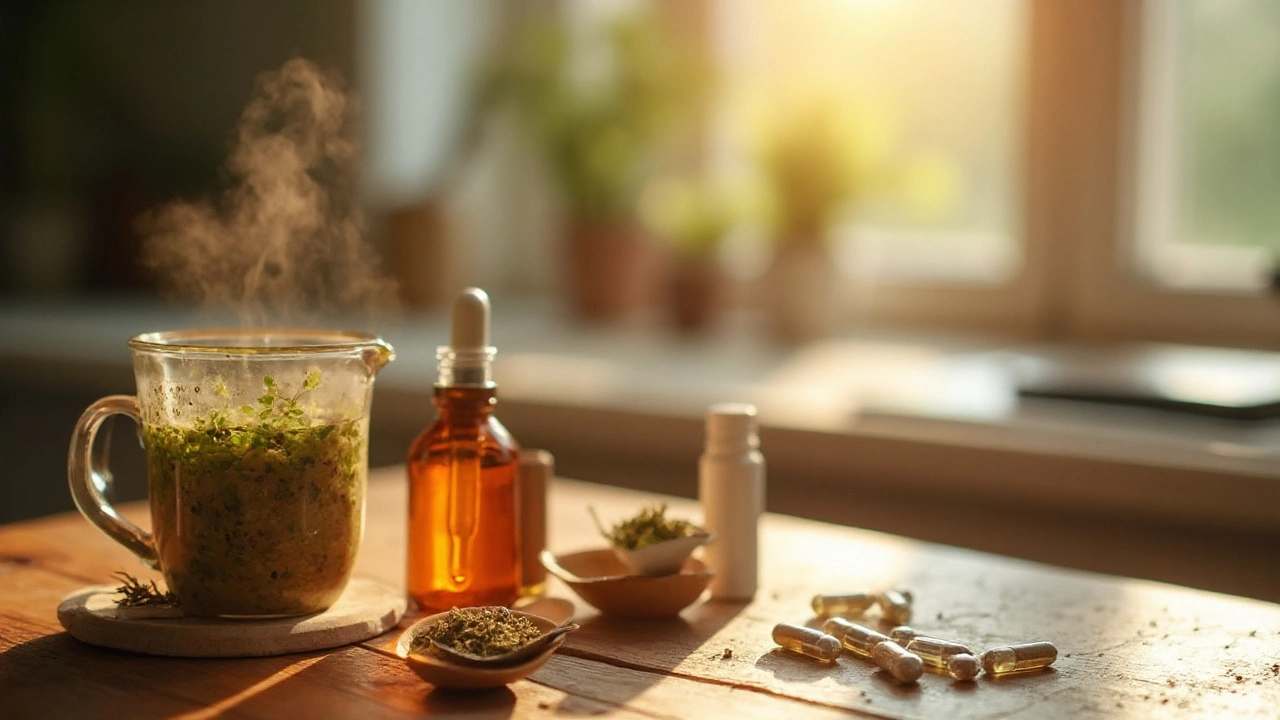Urinary Health Herbs – Simple Natural Support for Your Bladder and Kidneys
If you’ve ever felt a tug at the bathroom door or dealt with a nagging lower‑back ache, you know how frustrating urinary issues can be. The good news? A handful of herbs have been used for centuries to keep the urinary system running smoothly. Below we break down the most effective herbs, how they help, and practical ways to add them to your routine.
Why Herbs Work for Urinary Health
Most urinary‑support herbs act as gentle diuretics, anti‑inflammatories, or antimicrobial agents. By increasing urine flow they flush out irritants, while anti‑inflammatory compounds soothe the bladder lining. Some, like uva‑ursi, contain natural acids that create an unfriendly environment for bacteria, helping prevent infections.
Top Herbs to Try
Cranberry (Vaccinium macrocarpon) – The classic urinary‑friendly fruit. Its pro‑anthocyanidins stop bacteria from sticking to the bladder wall. Drink 8‑12 ounces of unsweetened cranberry juice daily or take a standardized capsule (500 mg) with meals.
Uva‑Ursi (Arctostaphylos uva‑ursi) – Known as bearberry, it’s a mild antibiotic for the urinary tract. Use the leaf extract (300‑500 mg) for a short‑term boost during a suspected infection, but avoid long‑term use to protect liver health.
Corn Silk (Zea mays) – The soft threads from corn ears act as a soothing diuretic. Brew a tea with 1‑2 teaspoons of dried silk in hot water, sip 2‑3 cups a day to ease mild irritation.
Horsetail (Equisetum arvense) – Rich in silica, it supports the connective tissue of the bladder and urethra. A tea made from 1 teaspoon of dried horsetail, taken twice daily, helps with frequent urination.
Dandelion (Taraxacum officinale) – A natural water‑pill that encourages gentle flushing of the kidneys. Add dandelion leaf tea or a 300‑mg powdered supplement to your morning routine.
Nettle Leaf (Urtica dioica) – Provides minerals that keep the urinary tract strong. Drink nettle tea (1 teaspoon per cup) or use a 200‑mg supplement to reduce bladder spasms.
These herbs work best when you pick the one that matches your specific symptom—cramping, infection risk, or excessive water retention.
How to Use Herbs Safely
Start with the lowest suggested dose and see how your body reacts. If you’re on prescription diuretics, blood thinners, or have kidney disease, check with a healthcare provider before adding any herb. Most herbs are safe for short‑term use; prolonged daily dosing should be discussed with a professional.
Combine herbs with hydration—aim for 8‑10 glasses of water a day. Proper fluid intake helps the herbs flush the system efficiently and reduces the chance of crystals forming.
Quick Tips for Everyday Bladder Care
- Keep a bladder diary for a week to spot patterns.
- Avoid caffeine and alcohol if you notice extra urgency.
- Empty your bladder fully by leaning forward and pausing briefly.
- Include the recommended herb in a consistent routine—same time each day.
With the right herb and a few habit tweaks, you can support a healthier urinary system without relying on harsh chemicals. Try one herb at a time, track results, and you’ll soon know which natural remedy works best for you.
Buchu Benefits: Why This South African Herb Belongs in Your Wellness Routine
- Beata Staszkow
- |
- |
- 20
Curious about buchu? Learn what it can and can’t do, safe doses, best forms, UK buying tips, and who should avoid it-backed by research and real-world use.
View more
